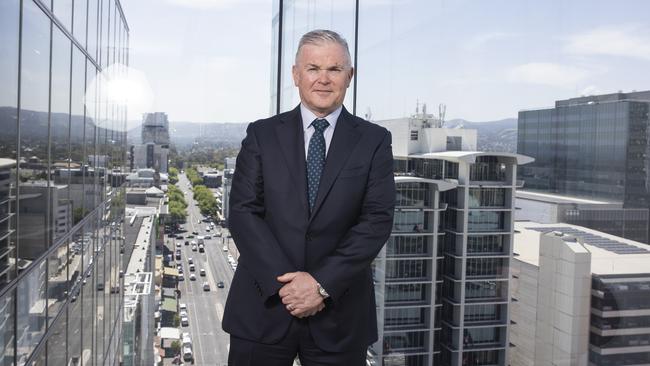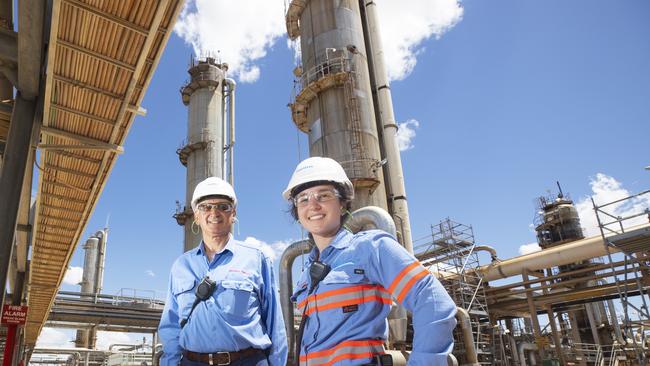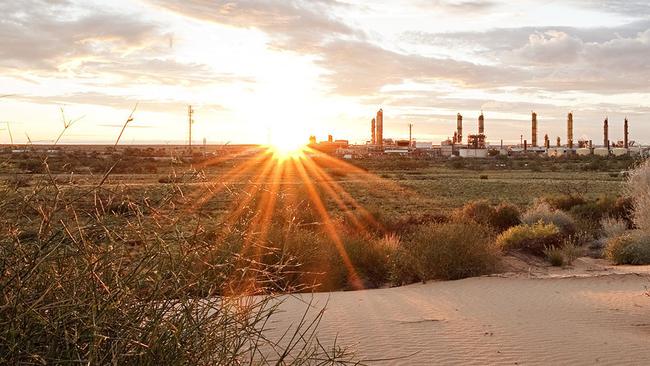Paul Starick | Gas price caps not all right to fix power price crisis
This week, the boss of Santos, SA’s largest firm, ripped into the federal government. Paul Starick looks at why – and whether it was warranted.
Opinion
Don't miss out on the headlines from Opinion. Followed categories will be added to My News.
As gas price caps are poised to ravage the state’s biggest company, Energy Minister Tom Koutsantonis must be tempted to adopt the fanciful solution of Covid-like border closures to isolate the state’s supply.
There was no doubt about the degree of outcry from gas producer Santos, South Australia’s largest firm, at the federal government passing temporary gas price caps on Thursday.
Santos managing director and CEO Kevin Gallagher savaged the measure, designed to limit steep electricity price rises, declaring: “This Soviet-style policy is a form of nationalisation.”
Explaining his incendiary rhetoric, Mr Gallagher argued: “Every business owner in Australia should be alarmed at what the federal government has done today. If it doesn’t like your business, your profits or the prices you charge for your products and services, it will regulate you. And it will regulate you if the unions don’t like your business, your profits or the prices you charge.”

It’s too easy to dismiss Mr Gallagher’s calculated outburst as the bleatings of a fossil fuel energy tycoon, sulking at having his supercharged profits pared back by a necessary move to cut power prices and smooth the transition to renewable energy.
This is because gas price caps are not a panacea. Electricity prices will still rise dramatically next year – just not by as much.
Like it or not, gas-powered electricity generation keeps the lights and airconditioners on in SA by providing baseload power at peak times.
SA might be a world leader in renewable energy uptake but, as yet, solar and wind cannot be guaranteed to produce electricity all the time to meet demand.
The clamour to achieve the necessary goal of a wholesale move to clean energy will not be achieved simply because many people want it to happen. Rather, it will require carefully constructed, innovative and deeply considered policy moves with great foresight – something that has been lacking in the National Electricity Market almost since its inception.

The blunt instrument of gas price caps might limit the amount generators pay for the fuel but, as Mr Gallagher points out, it stymies moves to increase supply.
“Because of its actions … this winter or the one after, the federal government will have to decide between rationing gas and breaking LNG export contracts, because this policy will damage Australia’s access to the capital inflows our industry needs to develop new gas supplies and that Australia will need to fund the energy transition,” he said.
This argument was reinforced by Innes Willox, the chief executive of national employer association Ai Group, who said: “Australia will need very large flows of domestic and international investment to transition our economy to net zero emissions and seize the opportunities involved in global energy transition.”
Crucially, Mr Willox highlighted that the overwhelming majority of Australian businesses were energy users, not energy producers.
“Energy users are still set to face significant cost increases in 2023, particularly because so many contracts for energy supply in 2023 have already been signed. We should not overstate the immediate impact of these measures on energy costs, particularly for industrial gas users. Nearly all users will pay more for energy in 2023 than they did in 2021,” he said.

Mr Willox argued the need for major government action on energy costs was “both obvious and well-telegraphed”. But the Australian Petroleum Production and Exploration Association powerfully argued, with some merit, that a functioning market had been up-ended “with virtually no consultation and within just days of being announced”.
In the unlikely event that Mr Koutsantonis was acting solely in the state’s interest, he might well use his powers to curtail interstate supply. After all, NSW has vacillated for years on Santos’s Narrabri project. If fully developed, that gas field is expected to contribute $531m annually to national GDP and employ 2900 people for years.
There is little independent evidence about the impact on SA of gas price caps and the associated federal legislation.
Mr Koutsantonis and Premier Peter Malinauskas will not attack their federal counterparts. It is, however, churlish and naive to assume they are wedded to Santos’ position because the Premier’s brother, Rob (Mr Koutsantonis’s former staffer), is that company’s head of government affairs.
Prime Minister Anthony Albanese insists his energy policy will provide energy price relief. Hopefully he’s right and there are no long-term unintended and devastating wider consequences from his doubtless well-intentioned move.





